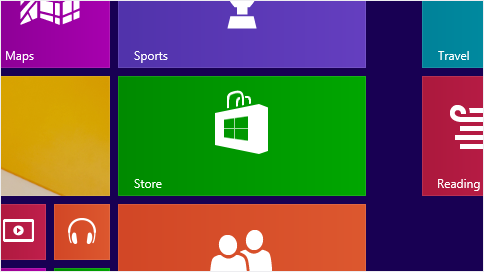Developers building apps for Microsoft’s Windows Store have now been given new options to give them more control over an app’s availability.
The updates to Microsoft app marketplace also include simplified certification requirements.
Developer Control
 Keith Senzel, principal group program manager, Windows Store Dashboard, detailed the changes in a Windows App Builder Blog post. On 24 January, he announced that the company had “added more control to choosing the release date for your app.”
Keith Senzel, principal group program manager, Windows Store Dashboard, detailed the changes in a Windows App Builder Blog post. On 24 January, he announced that the company had “added more control to choosing the release date for your app.”
Prior to the new options, apps were published as soon as they wended their way through the certification process. Now developers can fine-tune their release dates and times.
“Rather than only choosing the date, you can now set the hour and time zone. Additionally, you can change the release date while your app is in certification, rather than sending it through the certification process again,” stated Senzel.
“This is handy if your plans change after you’ve already submitted the app, or if you find you need a little more time to prepare for its launch,” he added. Windows app developers have until the Signing and Publishing phase to make their changes before they are locked in.
Developers were also given more flexibility should they have to pull buggy apps or make urgent changes. “We’ve now given you the ability to remove your app’s listing from the Windows Store at any time just by clicking Remove this app’s listing in the Manage availability section of the App details page in your Dashboard,” Senzel wrote.
As expected, removing an app prevents Windows Store visitors from downloading and purchasing pulled apps. Microsoft cautioned that the feature also prevents existing users from making in-app purchases. Clicking the “Restore this app’s listing” in the dashboard makes apps available again.
In the wake of the Windows 8.1 release, coders can now drop support for Windows 8 with an option to de-list their apps in the Windows 8 catalogue. “This means that new customers can only acquire the app if they’re running Windows 8.1. (Windows 8 customers who already have the app can continue to use it, but won’t be able to make in-app purchases),” said Senzel.
Relaxed Certification
Additionally, the company has relaxed some certification requirements “while still maintaining appropriate levels of app quality.” Version 5.0 of the requirements, for example, now allows app developers more flexibility in how ads are displayed.
According to the Windows Store app certification requirement document, the company removed a “requirement that an app not use its description, tiles, notifications, app bar, or the swipe-from-edge interactions to display ads.” Microsoft also revised or outright deleted several other requirements, including one governing large data transfers over metered networks and a performance baseline for low-power devices, among several others.
Of late, Microsoft has been making strides in turning its Windows Store into a more developer-friendly place. In October, the company unveiled new Bing-powered app discovery features that perform a better job of surfacing apps for visitors, thereby helping developers monetise their creations. And just before the 2013 holiday season, the company announced new gift cards to compete against similar gifting options in Google Play and the Apple App Store.
Is your Microsoft knowledge a bit cloudy? Try our quiz!
Originally published on eWeek.




